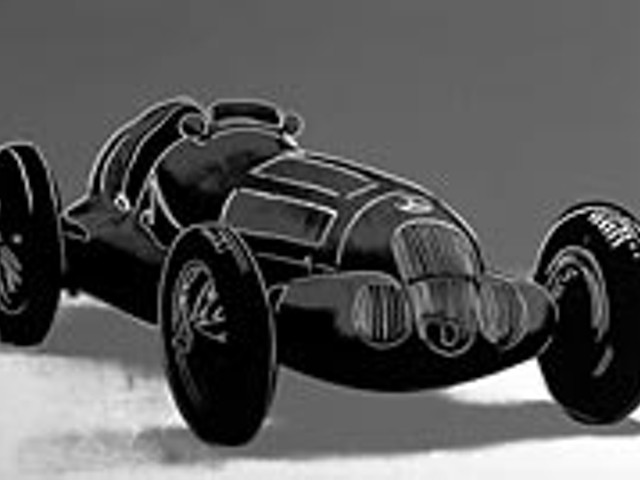The album appeared in 1973 on the legendarily out ESP-Disk imprint — the label behind such free-era-defining documents as Albert Ayler's Spiritual Unity, Marzette Watts' Backdrop for Urban Revolution, and Noah Howard's At Judson Hall — and featured future free-jazz icons such as bassist William Parker and Art Ensemble of Chicago reeds player Joseph Jarman as sidemen. And though the album titled Black Beings is probably saxophonist Frank Lowe's best-known recording, it's a double-edged memorial. For while it's true that this saxophone colossus could play without the proverbial net, Lowe, who departed this planet Sept. 19 from lung cancer complications at the age of 60, was an avant-gardist in that most unfashionable sense of the term: He didn't care what style the sound was being called — it was all music to his ears.
His anything-goes palate was nurtured in his hometown of Memphis, where a teenaged Lowe drank deep of the Bluff City's vibrant 1960s blues and R&B activity, counting future saxophonists Charles Lloyd and Hank Crawford and singer Carla Thomas among his peers. He eventually worked for Stax Records — the Memphis Horns' Packy Axton, son of Stax co-owner Estelle Axton, was Lowe's first teacher — before heading off to San Francisco to study with multi-instrumentalist and John Coltrane collaborator Donald Rafael Garrett, after which he relocated to New York and started playing in Alice Coltrane's band in the early 1970s.
Those associations go a long way to explaining Lowe's reputation as a Coltrane acolyte, to which his playing at the time — in such cosmic Coltrane-influenced projects as Alice Coltrane's World Galaxy, with Rashied Ali on Duo Exchange, and the aforementioned Black Beings — undoubtedly attests. And yet, Lowe's education wasn't one-dimensional: He also studied with Sonny Simmons and little-known but fluidly versatile player Bert Wilson in San Francisco, and he soon took up long associations with composers/players with world-traveling ears and minds, most notably Don Cherry and Billy Bang.
It's in these pan-ethnic settings — from the African/Middle East moods of Cherry's 1975 Brown Rice or the Southeast Asian tonalities of Bang's 2001 Vietnam: The Aftermath — that Lowe's walk-in closetful of timbres, rhythms, phrasings, and voicings blossom full. Though free is an idiom immediately associated with faster tempos and note clusters, the mature Lowe found the solemn, romantic, and witty in the occasionally obdurate morass, always searching for emotions in the density. Such a tenderness did mean his was a melancholic presence — few jazz albums, much less free albums, are as nakedly forlorn as Lowe's 1982 Exotic Heartbreak — but Lowe's tenor was always an immediately and joyously human touch. The avant-garde may be where jazz history corners Lowe, but the plain old mundane world of music was where he lived his life.





